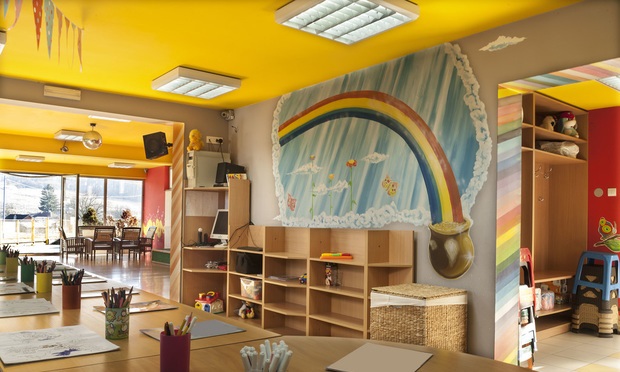Count child care assets as among the net lease categories investors should be watching. So says Milo Spector, associate director at Stan Johnson Co. We caught up with Spector for a quick Q&A on why child care assets should be on net lease investors radar. Following are excerpts from the interview.
How does pricing for net lease early education/child care properties compare to other net lease investments?
Traditionally, child care assets have traded a bit higher in terms of cap rate compared to some of the more standard asset types, like fast food restaurants, drugstores, or auto parts stores. Many investors do not have a personal connection to the tenants or brands in the space like they do with other asset types, and that leads to a lack of knowledge about the strength and performance of the industry. Over the last few years though, we have seen cap rates really start to get more aggressive. The same deals that were getting done at a 7-8% cap rate or higher are now closing in the low- to mid-6-7% cap rate range. In my opinion, this shift has been largely driven by an increase in demand from high-net-worth individuals who are searching for higher yields and looking for solid, internet-resistant tenants.
Which characteristics of these facilities are most attractive to net lease investors?
These properties generally satisfy a net lease investor’s criteria as they often feature long-term triple net leases with national operators and good real estate. I think what is especially exciting about the space is the higher yield investors can get with strong operators – oftentimes corporate operators – as well as strong rent increases in the base lease term. There are a lot of assets in the $3-8 million price range that offer 6%+ cap rates with long-term leases and national tenants, but they usually have flat leases, so you end up getting compensated on the front-end. These child care deals are the best of both worlds because you can get a desirable cap rate, a long-term lease with a national operator who a lot of the time is corporate, and rental increases in the base term. An added bonus is that the early education/child care business model is internet- and recession-resistant. Even in today’s market where distance learning is rapidly growing, you still have parents who need their children to be enrolled in a facility like this so they can go to work or effectively work from home.
Is new development or expansion occurring in this space?
Yes, we are seeing new schools popping up and new development in the pipeline for this year and next. Most tenants are expanding selectively but are still pursuing new opportunities. We are also seeing smaller “mom and pop” operators – who might have been nearing retirement, for example – exit the industry, selling their business to larger operators. But I think folks are optimistic that the pandemic is temporary, and no one wants to risk missing out on a great location for a new facility while their competition continues to grow and take market share.
What are your predictions for the industry over the next 12-24 months?
Like most industries, the early education/child care sector has taken a hit during the pandemic, but I believe there is pent up demand in this space. Some parents are anxious to get their children enrolled in schools and daycares because they cannot continue to effectively work while playing the role of babysitter or teacher. Many facilities in this sector have reopened with safety precautions in place, and it is often not necessary for centers to shut down fully in the event of a reported COVID-19 case. In my opinion, this sector is very much the backbone of the economy, and I expect there will be continued demand for these services. This is an essential business, and I think we will continue to see this segment grow and change to accommodate the times.
